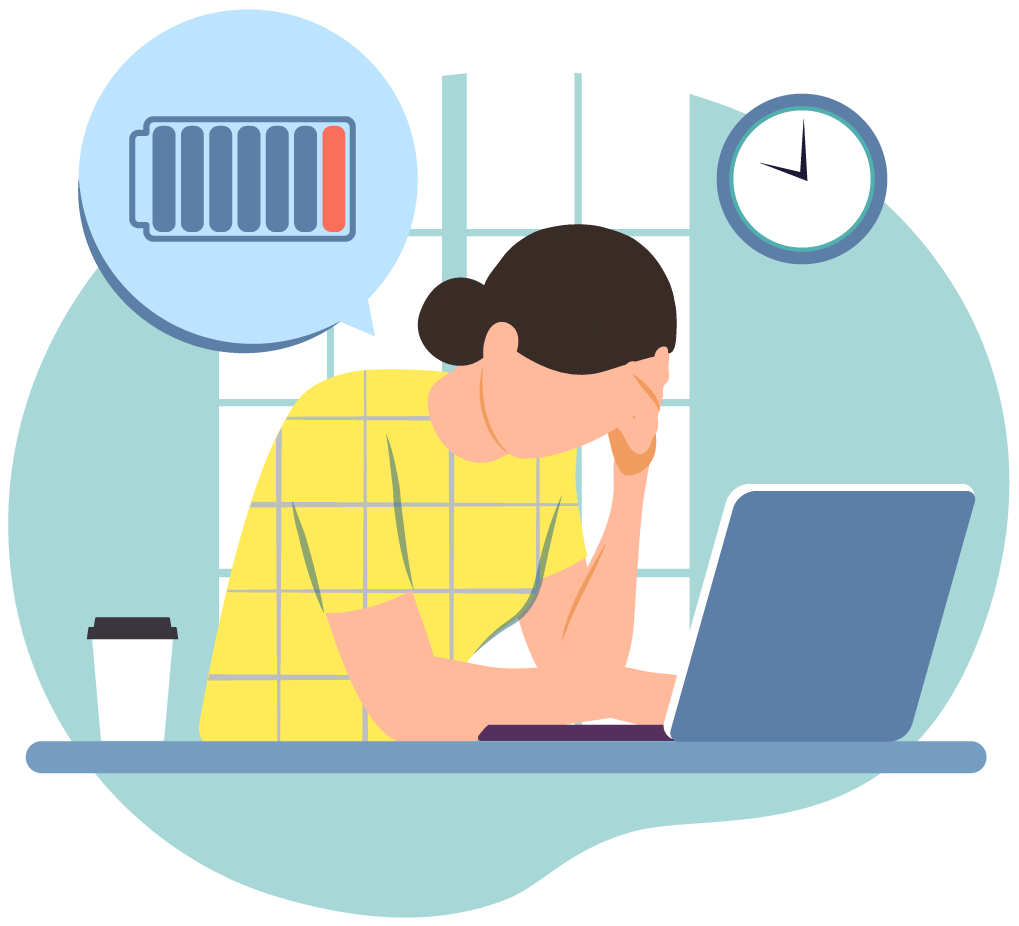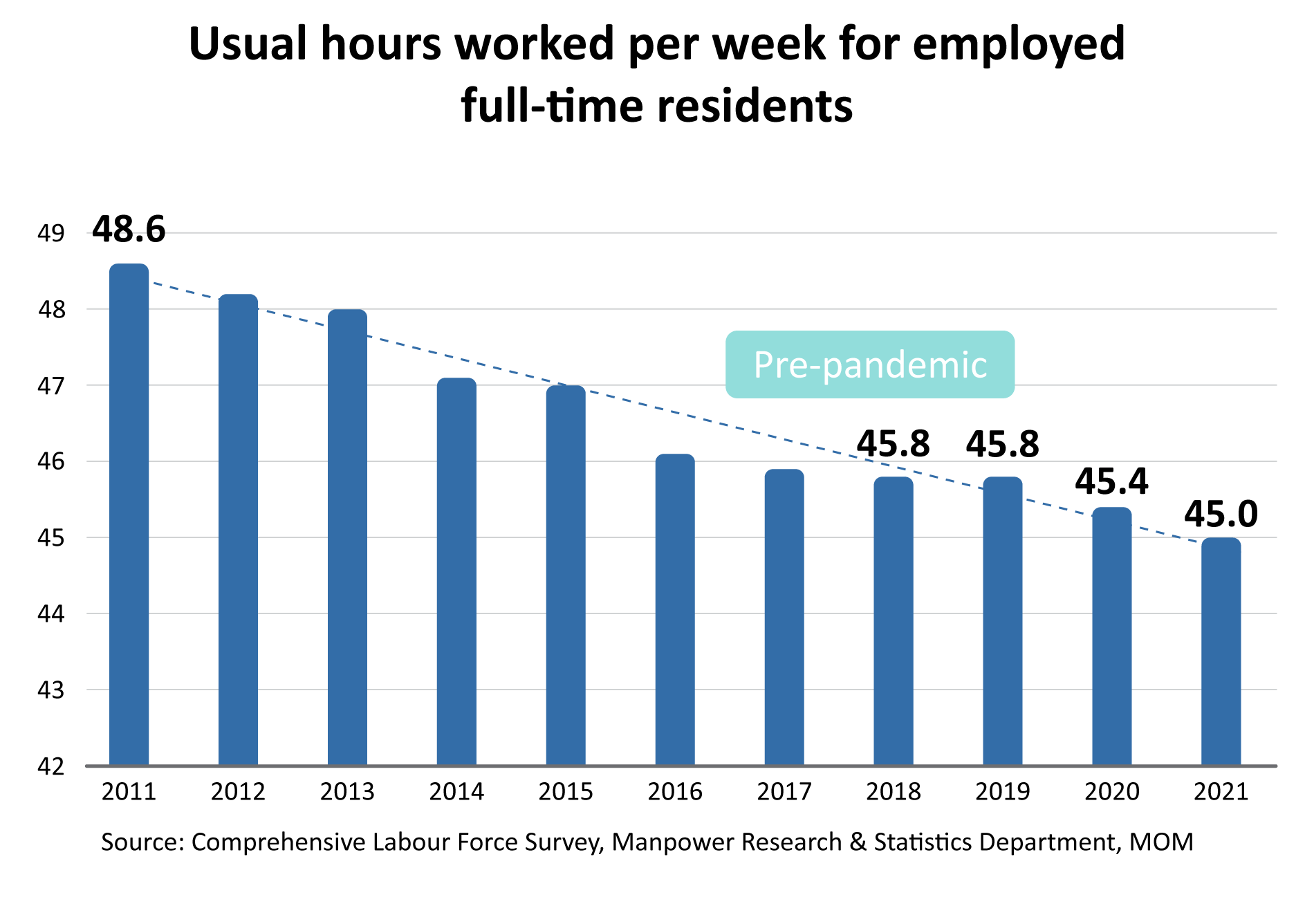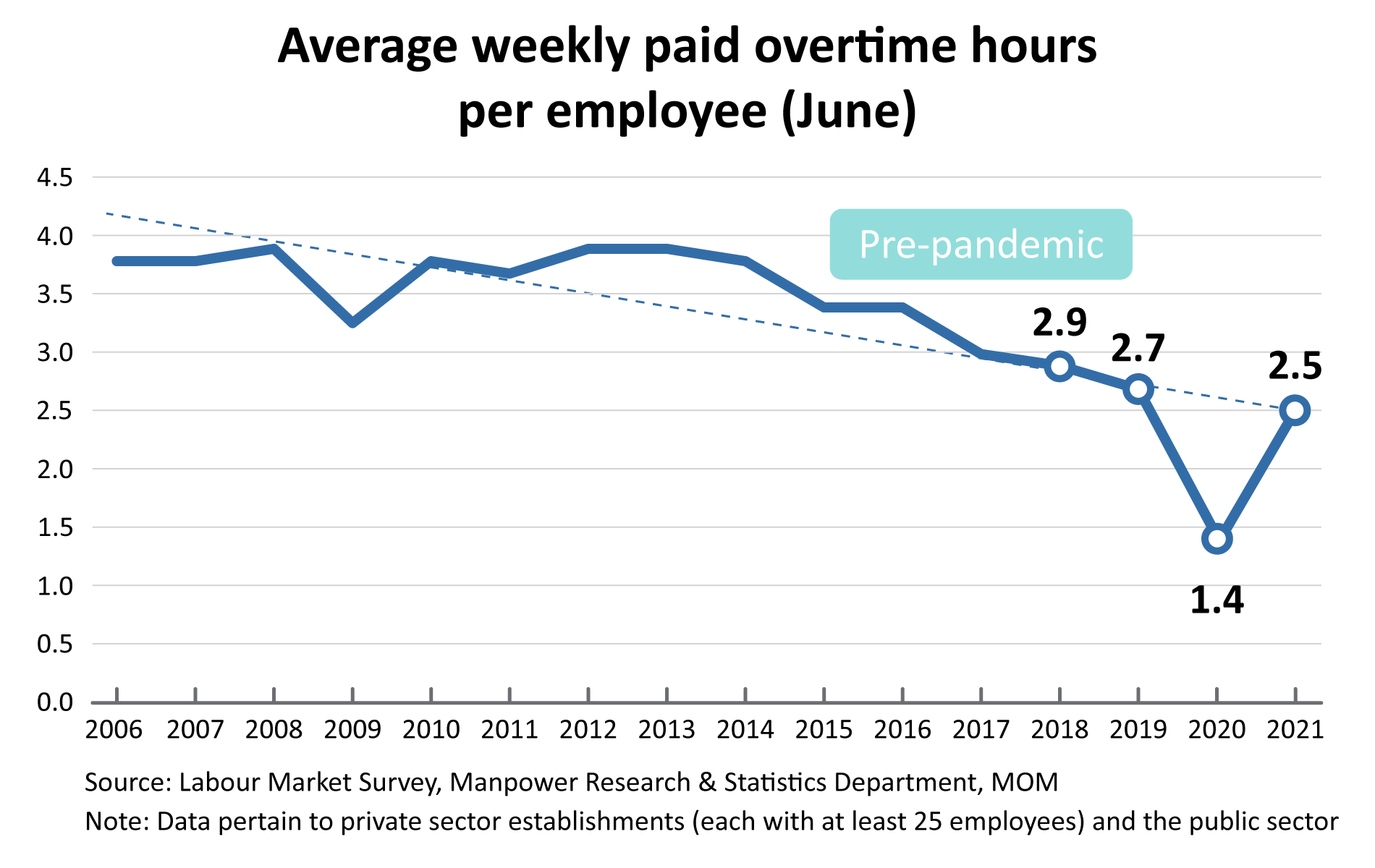A closer look at hours worked
Are we working long hours?
Singaporeans are known for their efficiency, aided by high accessibility to technology and information. As a cosmopolitan city with openness to trade and globalisation, some may also work more flexible schedules compared to traditional nine-to-five work weeks. This flexibility in managing work time with no clear delineation of “office hours" may lead to the impression of long work hours.

So, what does our data on hours worked reveal? One way to measure working hours is to look at usual hours worked. This refers to the
number of hours that employed persons usually work in a typical week, regardless of whether they are paid for it. With technology, there could be hours in which the worker is away from the work location regularly and not performing work during these hours. These hours
should not be considered as working time. You can read more about the concepts and definitions of hours worked
here.
Employed full-time Singaporean residents have worked fewer usual hours since the peak of COVID-191. This remained consistent with pre-pandemic levels at 45.8 hours per week. One possible reason for the decrease could be the increased accessibility and reliance of technology such as video conferencing tools Zoom and Microsoft Skype, as well as the increased provision by establishments of flexible working arrangements (FWAs) to streamline work processes. More employees are utilising flexible working arrangements such as tele-working, job sharing and flexi-time/staggered hours as they place more emphasis on work-life balance.

Quality versus Quantity
One way of gauging excessive working is by measuring overtime hours worked. In fact, our data shows that the
average weekly paid overtime hours worked per employee has improved since 2006. In 2021 (June), the average hours in excess of contractual working hours are 2.5 hours per employee weekly, down from 2.9 hours per employee pre-COVID-19 in 2018 (June).
In fact, the average overtime hours worked has been on a general decline over the last decade. This reflects productivity improvements, as well as tripartite efforts to reduce the excessive overtime hours to ensure workers have rest. Recent shifts in working styles when working from home (WFH) and the ability to work more flexibly at locations other than the traditional office space could also contribute to the continued fall in overtime hours. Therefore, one should look at the
quality of hours worked, instead of merely the length, as workers value work-life harmony increasingly especially amidst the pandemic.


Working smarter, not just harder
While there is no magic formula for calculating the unique work-life balance required for each employee or for optimal productivity, the increased provision of FWAs as well as the adoption of a hybrid WFH-office model, has led to Singapore's reduced usual hours worked as well as average weekly paid overtime hours worked, with a likely increase in productivity.
Simple yet effective ways to reduce unnecessary hours worked can be delaying non-urgent emails or calls to the next working day or choosing to work for a company with less expectations of working beyond contractual hours. This is a win-win for both parties as employees enjoy more flexibility in work arrangements and therefore attain a more positive mental well-being; while employers enjoy heightened productivity, as happy employees equate to better businesses.
(1) Source: Labour Force in Singapore Advance Release 2021